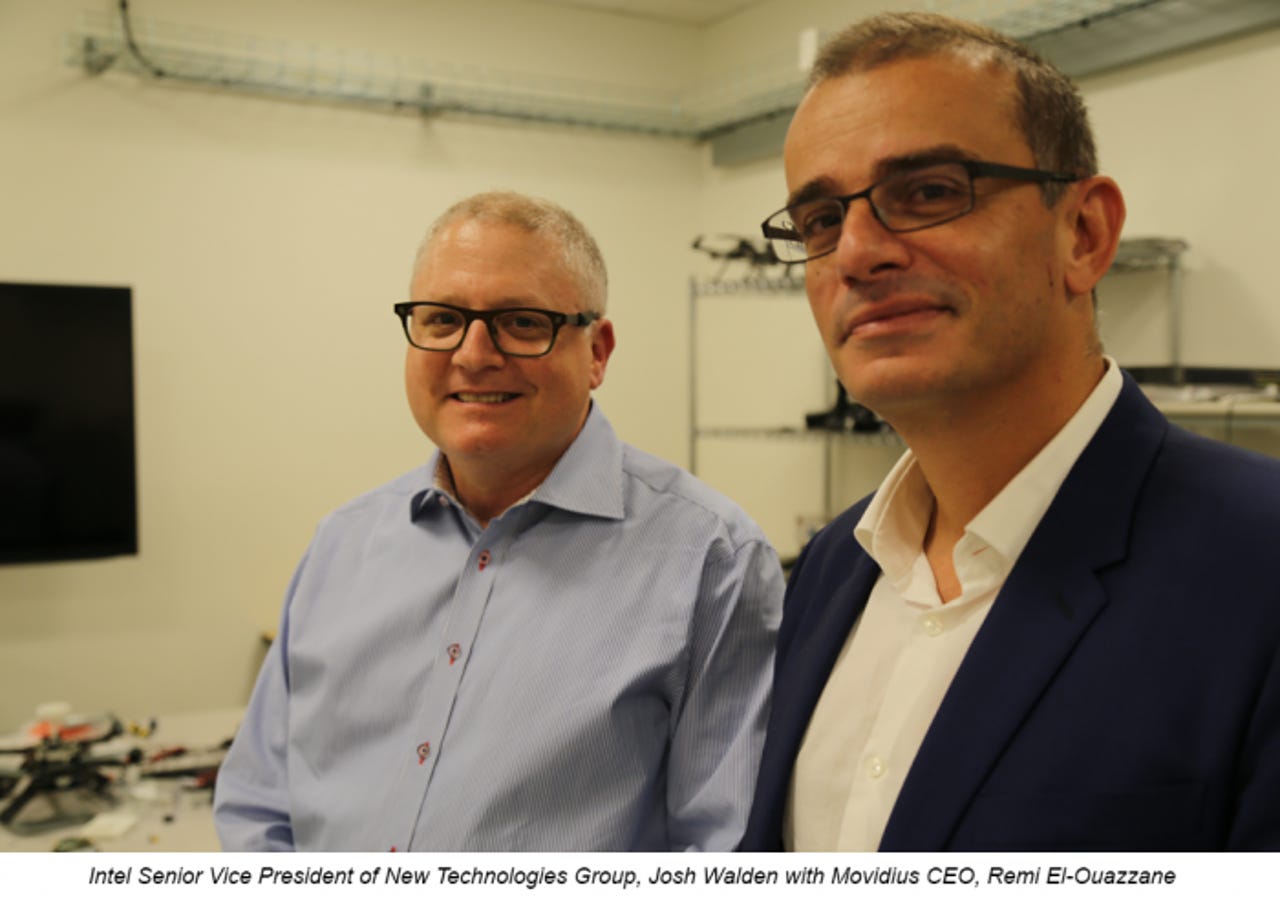Intel snaps up Movidius to create future computer vision, VR tech


Intel has announced the acquisition of Movidius, a chip manufacturer focusing on developing next-generation computer sensing and vision technology.
San Mateo, California-based Movidius, which already counts Google and Lenovo as customers, develops sight capabilities for machines and PCs.
The company's vision processing unit (VPU), the main shunt of the company, is a platform for on-device vision processing which works in tandem with Intel RealSense technology to give computer systems the capability to view 3D images, understand surroundings and objects, and then react accordingly.
This technology can be found within drones, security cameras, artificial intelligence and virtual reality, and as these industries develop, the potential use for such inventions will also increase.
The financial terms of the deal were not disclosed.
Remi El-Ouazzane, CEO of Movidius said in a blog post that Movidius will continue to focus on the "mission to give the power of sight to machines," but the deal will give the firm's development teams more resources to boost research and execute at scale.
The executive also revealed that Movidius has recently begun to focus on granting "sight" to low-power hardware, a complex task considering the use of sophisticated algorithms at the device level. At Intel, this challenge will continue, but cloud computing and networking will also be included in the project.
"When computers can see, they can become autonomous and that's just the beginning," El-Ouazzane commented. "We're on the cusp of big breakthroughs in artificial intelligence. In the years ahead, we'll see new types of autonomous machines with more advanced capabilities as we make progress on one of the most difficult challenges of AI: getting our devices not just to see, but also to think."
In August, Intel revealed Project Alloy, a virtual reality headset which combines RealSense technology with battery power, allowing users to experience what Intel CEO Brian Krzanich called a "merged reality."
Considering Movidius' specialisation in power-limited devices and VR, the combination of both companies' technology appears to be a solid fit -- and that may only scrape the surface of what Intel plans for the new acquisition.
"We see massive potential for Movidius to accelerate our initiatives in new and emerging technologies," said Josh Walden, Senior Vice President and General Manager of Intel's New Technology Group. "The ability to track, navigate, map and recognize both scenes and objects using Movidius' low power and high-performance SoCs opens up opportunities in areas where heat, battery life and form factors are key."